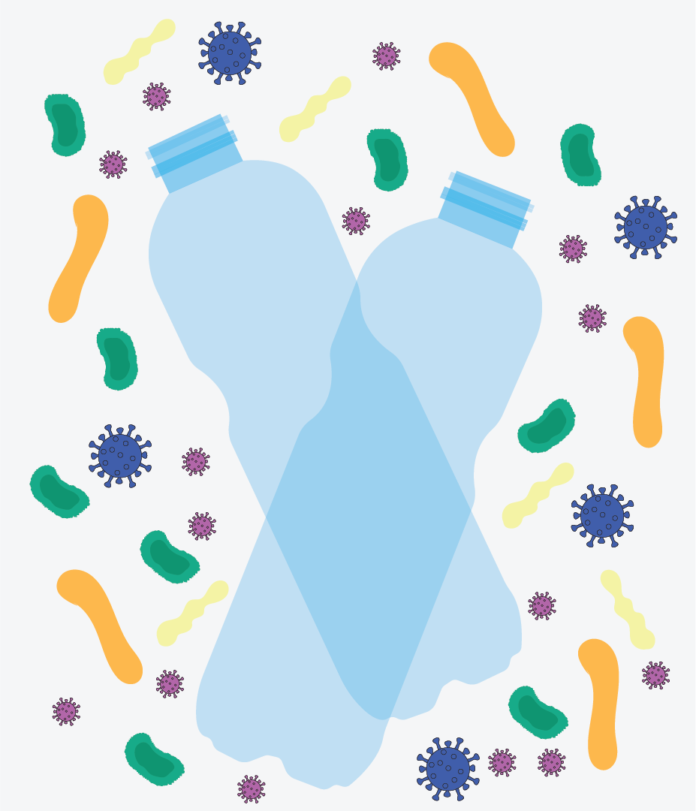At the fourth annual Graduate Studies and Postdoctoral Affairs (GSPA)’s GRADflix showcase, Eugenia Dadzie, an MSc biology student, won first place with her video Microbes and enzymes: sustainable plastic degradation. The GRADflix competition was created to allow UW graduate students to present their research in a one-minute video. Dadzie shared her work on the exploration of using microbes to degrade plastic using cartoon drawings and pictures to animate her research.
Although Dadzie chose to pursue science, she had always wondered how animations were made, and when she received the email about the competition she welcomed the challenge.
“It was a good opportunity to sum up my research… one thing I found with my friends is that when I tried to explain my work, I would get too technical and until I made that video, none of my friends knew what my Master’s was,” Dadzie said.
Her video describes her current research and also addresses the larger problem of plastic pollution. Dadzie explained that most plastic is produced in developed countries however, the majority of the plastic that ends up in the ocean comes from developing countries. Thus, finding an efficient way to dispose of plastic waste sparked Dadzie’s interest.
“I’m from Ghana and the plastic waste management is not as efficient as it is here. Here it is pretty good, the methods are still not very sustainable but back home it is neither efficient nor sustainable. The situation there is worse in terms of getting people to understand how detrimental plastic pollution is to our earth and to the ocean,” she explained.
Our current methods of waste disposal — incineration and landfills — aren’t very sustainable. Dadzie’s research works to utilize synthetic biology to manipulate bacteria to degrade our plastic waste.
“When I was growing up if someone mentioned bacteria, all I thought of was pathogenic bacteria. It wasn’t until I started undergrad and took a microbiology course, I began to realize the potential of using microbes to solve these problems,” she said.
Another part of Dadzie’s research explores the creation of bioplastics. In her lab, she looks at using plastic as a food and carbon source for bacteria. These bacteria can then potentially go on to make PHA’s which are natural polymers and polyesters used to make bioplastics, a safer alternative to synthetic plastic.
“Since 2016 a novel bacterium was discovered that completely degrades PET [polyethylene terephthalate, commonly known as polyester] and uses PET as a carbon source, this discovery helped gain a lot of momentum in the field,” Dadzie said.
Currently, these bacteria are found in various sites such as landfills. Many bacterial strains have evolved to degrade plastic, however, since plastic is a relatively new material, the efficiency of these bacteria is low. Dadzie works to then isolate and engineer enzymes responsible for degradation to confirm their function and to improve the breakdown process. Her end goal is to channel plastic breakdown into the production of PHA by manipulating the metabolic process of PHA-producing bacteria.
Overall, Dadzie explains how this win has given her a push and sparked much excitement surrounding her research.
“It is hard to get the message across on my own as a graduate student as I don’t have a big platform, that’s why GRADflix is so significant because it gives you that spotlight to shine more light on this important issue,” Dadzie said.































